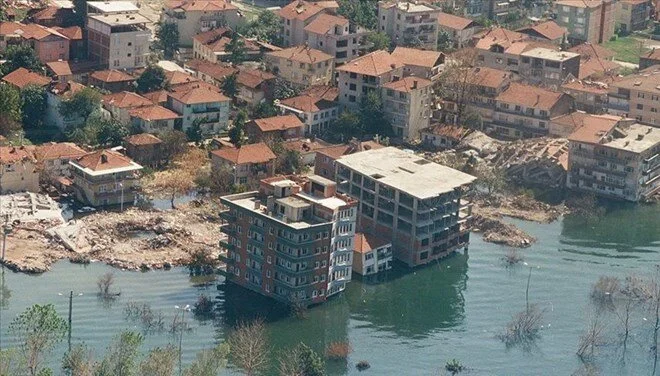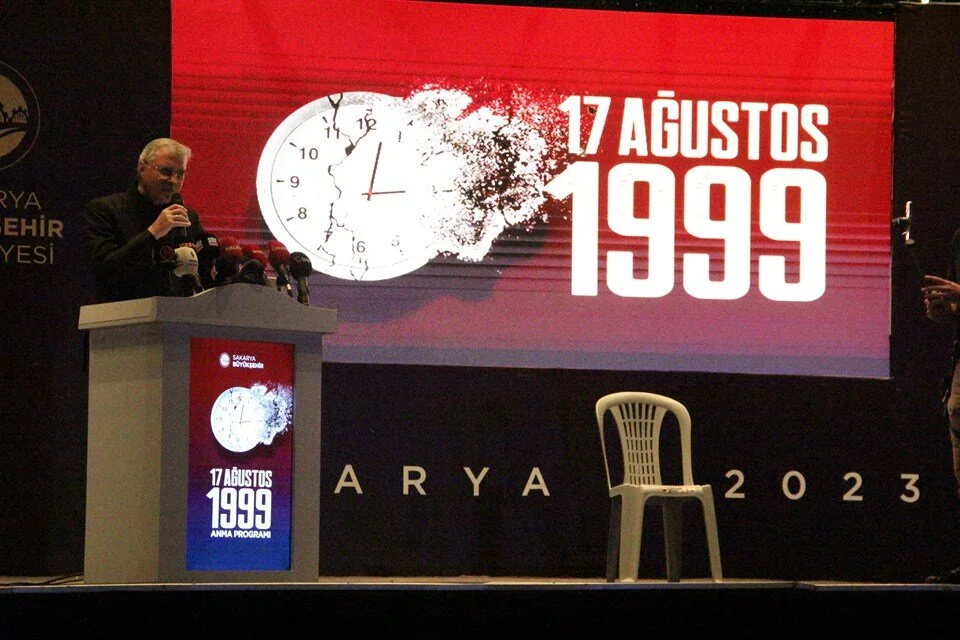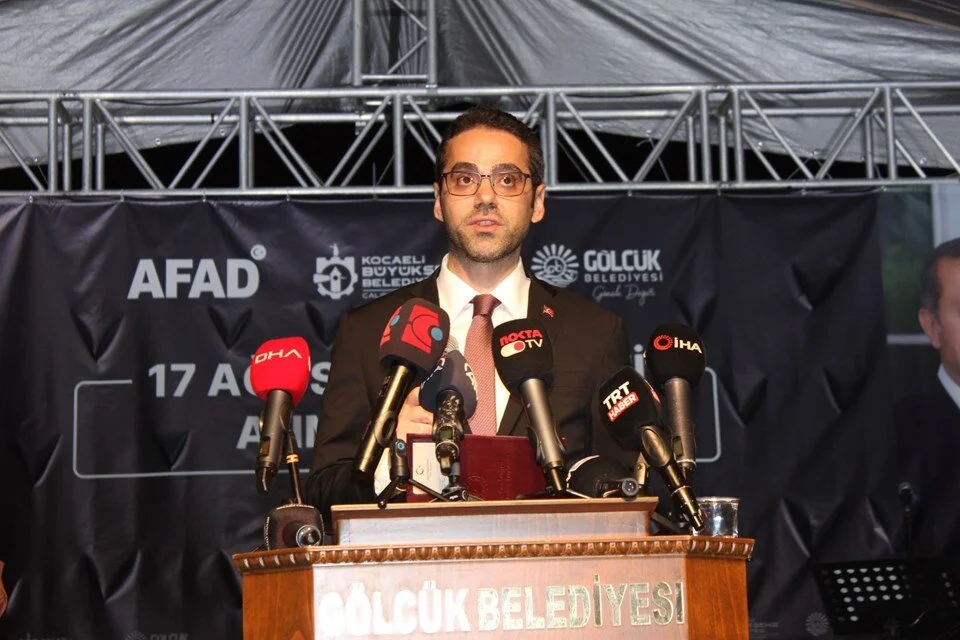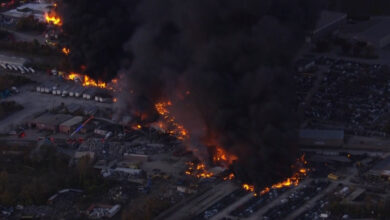17 August 1999 Marmara Earthquake victims commemorated

17 August 1999 Marmara Earthquake victims commemorated
Ceremonies were held in Gölcük district of Kocaeli, Sakarya, Yalova and Istanbul for those who lost their lives in the earthquake that occurred on 17 August 1999. Nearly 20 thousand people lost their lives in the disaster, one of the most important events that deeply affected Turkey’s recent history.
The 7.4 magnitude earthquake, which occurred at 03.02 on 17 August 1999, with its epicentre in Gölcük district of Kocaeli, was felt in the Marmara Region and in a wide area from Ankara to Izmir.
According to official reports, 17,480 people died and 23,781 people were injured in the earthquake that occurred on 17 August 1999, one of the most important events that deeply affected Turkey’s recent history. 285 thousand 211 houses and 42 thousand 902 workplaces were damaged. According to the 2010 parliamentary research report, the number of people who lost their lives was 18,373 and the number of people injured was 48,901.

Following the disaster, approximately 16 million people were affected by the earthquake to varying degrees.
In the commemoration event organised for the 24th anniversary of the Marmara Earthquake in front of the Earthquake Monument in Kavaklı Beach in Gölcük district of Kocaeli, a moment of silence was observed at 03.02, the time of the earthquake, and prayers were offered for those who lost their lives in the earthquake.
Speaking at the commemoration programme organised for the disaster, Deputy Minister of Foreign Affairs Yasin Ekrem Serim said that they are pleased to see that Gölcük and other districts have recovered strongly after the great destruction on 17 August.
6 FEBRUARY EARTHQUAKES WERE ALSO REMEMBERED
Stating that a similar pain to the one experienced 24 years ago was experienced in the Kahramanmaraş-based earthquakes on 6 February, Serim said, “We carried out a national mobilisation after the most devastating earthquake disaster in the history of our Republic. In this process, the international community did not leave us alone. From the first day of the earthquake, it extended its helping hand to Turkey by sending search and rescue teams, medical personnel, mobile hospitals and emergency humanitarian aid materials. I would like to say that we are grateful to the international community for the close solidarity and great support shown in these difficult days of our country. I would like to express again that as Turkey, we have mobilised all our means in all natural disasters, epidemics and humanitarian needs and we will do so in the future.”

“OUR INSTITUTIONS HAVE MADE GREAT PROGRESS IN HEALING THE WOUNDS OF DISASTERS”
Stating that the biggest difference between the 17 August and 6 February earthquakes was the performance of the state institutions after the earthquakes, Serim said, “We have seen together this year that our institutions have made great progress in healing the wounds of such major disasters in the 24 years that have passed. We will continue to see the power and means of our state in the reconstruction and construction activities carried out in the earthquake region. We will continue to work with our international partners in the reconstruction of the earthquake-hit provinces.”
Seddar Yavuz, Governor of Kocaeli, stated that Kocaeli, one of the cities that knows the earthquake best, has been with the earthquake victims since the first day of the earthquake on 6 February.
Explaining that they continue their risk reduction activities in Kocaeli and put forward a strategy to create a disaster-resilient society, Yavuz said the following:
“WE ARE OVERHAULING ALL PUBLIC BUILDINGS”
“After the investigations we have made, we will empty 30 schools and continue to rebuild them. Since 2020, we have completely renovated 46 schools with 553 classrooms and opened them for education. Currently, the construction of our school with 333 classrooms is ongoing, we will deliver it in a short time. We have made the tenders of a 146-classroom school and the site determination works are continuing. In addition, we will open 15 schools for education and training by 20 September at the latest. We are overhauling all public buildings. We are creating earthquake-resistant public institutions and organisations.”

Mayor of Kocaeli Metropolitan Municipality Tahir Büyükakın emphasised the importance of being ready for the earthquake in advance and said, “It is important to focus on what needs to be done at the time of the earthquake and to be ready for the management of the process after the earthquake. We are improving every year. From that day until today, our executives have served very well. We continue our work without slowing down.”
Stating that the risk screening of 250 thousand houses in Kocaeli has started to be carried out, Büyükakın said, “We are carrying out our scans with the support of our municipality, 2 universities, chamber of civil engineers and governorship. Approximately 15 per cent of them were scanned. 1 month has passed and we will finish all of them in 9 months. Necessary steps will be taken when the risk map is drawn. Studies are being carried out meticulously. We will complete these studies before it is too late and this city will be ready for a possible big Istanbul earthquake. We will not experience new sufferings.”
AK Party Kocaeli Deputy Saddetin Hülagü, Gölcük Mayor Ali Yıldırım Sezer and Consul General of Japan in Istanbul Kenichi Kasahara also made speeches in the programme.






